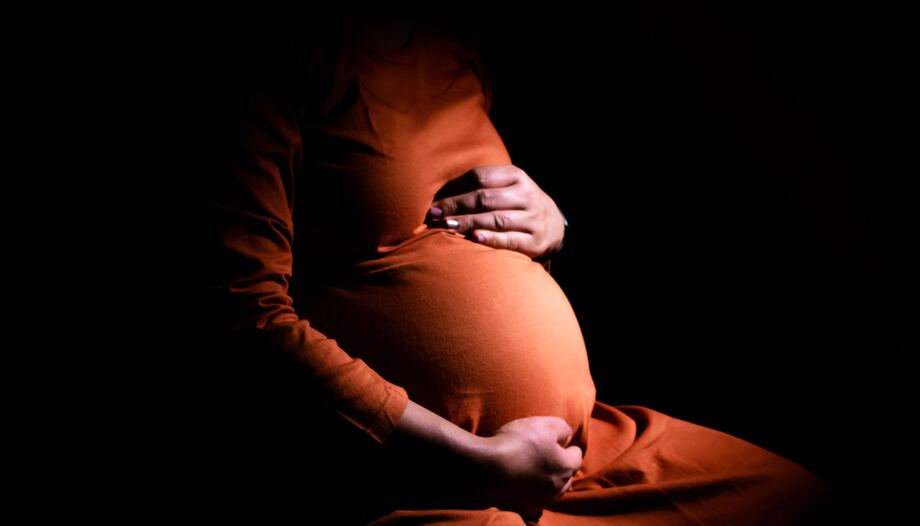It is nothing new for the Holy See to link the question of the defense of life to peace. For there can be no peace where human life is despised, and certainly human life is despised if the human being is eliminated before birth or killed before the natural end of life. However, in Pope Francis' address to the diplomatic corps accredited to the Holy See, the question of the defense of life took on an even more important nuance. For Pope Francis also said a firm "no" to the practice of surrogate motherhood, calling for an international ban on the practice of so-called surrogate motherhood.
A courageous and valuable position, which comes on the eve of an important conference to be held in Rome, on April 5 and 6, on the Casablanca Declaration, which aims to seek a legal instrument precisely to prevent the practice of surrogacy. A position that Pope Francis had already taken in 2022, meeting with members of the Council of the Federation of European Catholic Family Associations (FAFCE), and which places the Holy See at the forefront of the fight against surrogacy.
Why the Pope's speech is important
The position on surrogacy speaks volumes about how the Holy See's diplomatic activity impacts various issues. Pope Francis' January 8 address to ambassadors accredited to the Holy See is a case in point.
The speech is a tradition. Every year, on the first Monday after Epiphany, the Pope meets with the ambassadors and, on the occasion of New Year's greetings, delivers a speech outlining the Holy See's diplomatic priorities for the year. The Holy See maintains diplomatic relations with 184 States around the world, and the Pope's address is one of the few moments when they are all together, bearing in mind that not all ambassadors are resident ambassadors to the Holy See.
One of the guidelines is usually the theme of the message for the World Day of Peace, set by Paul VI on January 1. This year's theme was "Artificial Intelligence and Peace," and it addressed issues that the Holy See has been dealing with for some time, starting with lethal autonomous weapons. It is a theme that was touched upon in the Pope's address.
However, Pope Francis' speech covered several topics. In 45 minutes, the Pope referred to all the conflict scenarios that are close to him: from the Holy Land to Ukraine, passing through the situation in Nagorno Karabakh (the Pope spoke of the South Caucasus, to avoid the dispute over the name of the region in dispute between Armenia and Azerbaijan), also denouncing what is happening in Nicaragua and the tensions in Venezuela and Guyana, and touching on the difficult situations on the African continent.
Perhaps an allusion to the possible Chinese crisis, to the possible crisis over the Taiwan Strait, which could also have repercussions on relations between the Holy See and China, and to the recently renewed provisional agreement for the appointment of bishops, was missing. But it was a sign of diplomatic prudence, of the need to maintain a difficult balance in difficult situations.
Pathways to peace
The speech was not only a geopolitical examination, but also intended to indicate some possible paths towards peace. A peace that passes through interreligious dialogue, multilateral dialogue between States, care for creation -one of the key themes of the pontificate-, and attention to migrants. Above all, a peace that starts from the premise that we work for human beings, and that they are faces, flesh, blood, lives. The Pope points out that war is now global, that it almost always affects civilians as well, and warns of the danger of considering civilian deaths as "collateral damage". At the same time, Pope Francis reiterates the theme of the migration crisis, and even then asks to look at migrants not as numbers, but as human beings, with their crises, with their difficulties, with their difficult life choices.
Hence the call to respect international conventions that aim to humanize a war, and even Cardinal Parolin, the Vatican Secretary of State, went so far as to propose an office to judge to what extent the parties "humanize" a war, i.e. respect humanitarian law.
The human person as the key to the Holy See's diplomacy
As can be seen, the guiding thread of the Holy See's diplomacy is always the human person and the common good. This is the true international agenda of the Holy See.
Human rights are vigorously defended, but serious doubts are raised about the validity of second- and third-generation human rights, those of individual freedoms, which do not meet with unanimous consensus, but are based above all on individualistic ideologies, in the name of which the so-called "right to abortion" is also sought to be attributed.
The no to surrogate motherhood becomes a powerful tool for the Holy See's diplomacy. It says no to the throwaway culture, underlines the limitation of considering children not as a gift but as the fruit of a contract, and above all appeals to the conscience of all people of good will. This is not a Catholic appeal, but a political act that conveys a precise message on the centrality of the human being.
This is probably the most innovative passage of the Pope's speech to the diplomatic corps. And one can already assume some initiative of the Holy See in this direction, which will also break the silence that reigns on the issue of surrogacy when it is no longer fashionable. The images of children born in Ukraine by surrogacy and caught by war in the early 2020s remain in our eyes, completed with advertisements explaining how these children were well cared for while waiting for the arrival of their "fathers". Because war also does this: highlight the diabolical nature of man in times of peace.
This will probably be the big issue of the future.







